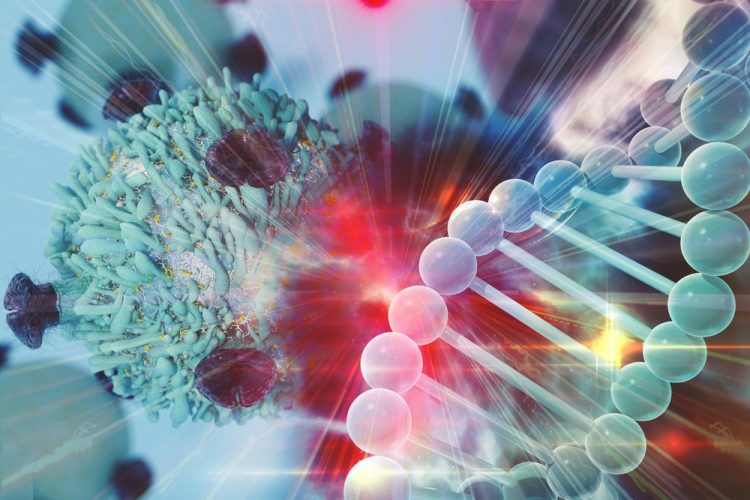Method for inhibiting tumour growth enzyme discovered
Posted: 23 July 2019 | Victoria Rees (Drug Target Review) | No comments yet
A new study has found a novel way to target an enzyme involved in cancer growth, which could inform therapeutics for the condition.


Researchers have identified a new way to inhibit an enzyme involved in cancer, which may avoid the toxicity of previous approaches. The enzyme ribonucleotide reductase acts as a bottleneck for tumour growth. According to the study’s authors, the findings could inform focused drug delivery efforts.
The investigation was conducted by researchers from Winship Cancer Institute of Emory University, Atlanta.
Ribonucleotide reductase is vital for cancer growth as it converts RNA ribonucleotides into DNA building blocks. Several chemotherapy drugs inhibit ribonucleotide reductase through a different mechanism.
The researchers found that RRM2, one of ribonucleotide reductase’s two sections, is regulated by a tag called acetylation. They also identified another enzyme called Kat7 that adds that same tag. At a particular site, acetylation inactivates RRM2 by preventing the individual molecules from pairing up.
“Based on our findings, we will develop novel anticancer agents that inhibit ribonucleotide reductase activity by directly regulating RRM2 acetylation in cancer cells,” says Xingming Deng, lead researcher.
In addition, the team observed that Sirt2, an enzyme that removes acetylation from RRM2 and activates it, is more abundant in samples from lung cancer patients. The team suggest that Sirt2 could be a prognostic biomarker for lung cancer.
The results were published in Nature Communications.
Related topics
Drug Targets, Enzymes, Oncology, Research & Development
Related conditions
Cancer
Related organisations
Nature Communications, Winship Cancer Institute of Emory University
Related people
Xingming Deng



